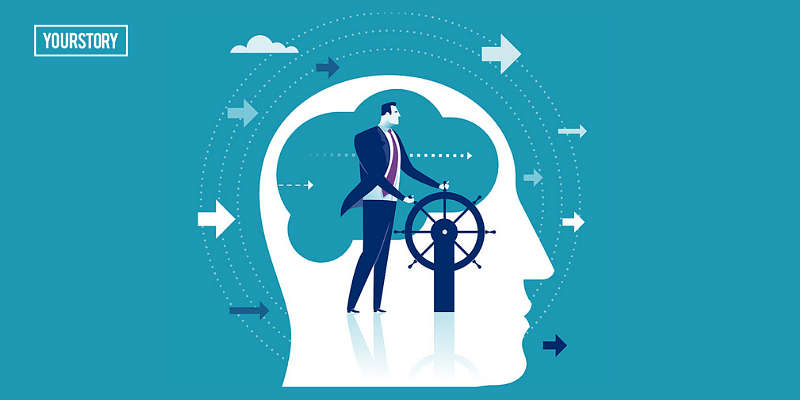If you are a CEO or aspiring to be one, you would already be aware that this role is extremely complex. You are under constant scrutiny from discerning stakeholders that expect the highest standards of performance.
As a CEO, you have to act with responsibility, resilience, creativity, empathy, intelligence and more.
Most CEOs’ that fail to deliver on such high expectations often cite chronic fatigue and stress as the common reasons for their downfall.
CEOs are so entangled in managing their companies that they ignore their personal wellbeing. The virtues of physical fitness are well known, however, the importance of a high functioning brain is often neglected. A healthy and active brain is imperative for not just their personal success, but also for the organisations they lead.
Advanced studies in neuroscience have established that simple self-practices to nourish the brain can improve cognitive skills and significantly enhance performance.
What are cognitive skills?
Simply put, cognitive skills include all processes that your brain deploys to read, process, perceive, analyse, retrieve, reason, memorise and link different pieces of old and new information.
Decision making is significantly driven by cognitive capabilities. As a CEO, continuous complex decision-making in a stressful environment depletes your cognitive powers.
If you neglect to nurture your brain’s cognitive skills, you will have higher chances of suffering from burnouts, poor decision making accelerating your stress levels – leading to failure.
Upgrade your cognitive skills
New breakthroughs in medical research demonstrate that even as adults that have fully developed brains, our brains can continue to be rewired to preserve, sustain & often increase our cognitive capabilities.
Harnessing your Cognitive skills does not require you to hire the services of brain scientists or undertake significant financial spends or work less!
A conscious and consistent self-practice routine dedicated to nurturing your brain can contribute significantly towards making you a wiser and smarter CEO.
Reboot your brain using these top 5 activities
Following are some of the easiest and simplest activities that will not impede your schedule, and yet enhance your brain-power at work.
1. Micro-breaks at work
Take multiple micro-breaks during your working hours. These micro-breaks should be impromptu with no time limits. Use that ‘time out’ to look outside of your window, walk up to your cafeteria, watch/read something funny, stretch – anything! Micro-breaks help disengage from work allowing the brain to rest.
Frequent short bursts of rest reduce stress, increase span of attention with the added benefit of lowering the heart rate, thereby inducing calmness.
2. Aerobic exercise in or out of office
You could cycle, dance, walk or engage in any favorite exercise of your choice. If you can manage to exercise for even 150 minutes per week; you are not just fueling your body but also your brain. Physical exercise releases more oxygen & hormones (endorphins, serotonin) to your brain that aid in reducing stress.
Exercise also augurs development of neurons and neuroprotective proteins enabling strong neural networks. Larger and faster functioning neurons are linked with higher intelligence and brain agility.
When you face unexpected situations of extreme duress, even a 10-minute stretching or mild ‘spot exercise’ has an immediate positive impact on your neurocognitive ability.
3. Stimulating Sleep
Culturally, we have been conditioned to believe that sacrificing sleep for more work translates into ‘hard work = success’ over time. Sadly, the malaise of less sleep continues to be largely misunderstood.
Sleep deprivation causes poor concentration, lower alertness and hampers learning.
Optimal brain functioning requires a minimum of 7-8 hours of sleep for most humans. Like any other organ, the brain neurons need passive time to rejuvenate, which can only happen when we sleep. Deep sleep is critical for our brain’s restoration.
4. Mindful meditation
Mindful Meditation as a habit has multiple neurological benefits including increasing concentration and attention. The source of all our stress, emotions and fear reside in a part of the brain called the Amygdala. Feelings of stress and fear are triggered from the amygdala.
A regular daily practice of even 10 minutes of mindful meditation enables the mind to induce calmness and openness.
A research study using Brain imaging to assess the impact of mindful meditation reported an actual reduction in the physical size of amygdala in those that were regularly engaged in mindful meditation practices.
Mindful meditation in the long run will reduce the bias of stress or fears and pave the way for more balanced decision-making.
5. A new learning to facilitate unlearning
Did you know that trying to ace your moves in Catan or learning Salsa or even building the Star Wars R2-D2 Lego set is a great brain-building activity for you?
As a CEO, you primarily apply skills and abilities acquired over decades of experience in your career to your role. Subconsciously, there is a habitual stereotyped way that you approach your work, thereby putting your brain in a ‘less stimulated’ and ‘auto-pilot’ mode.
Learning a skill, hobby or activity that is new, complex and challenging forces your brain to respond differently and adapt to this new learning. As your brain adapts to the new learning, it also rewires itself differently by developing new neural connections.
More neural connections expand the brain’s capacity to process more as well as develop new ways of thinking and doing.
Conclusion
Through the passage of time, CEOs have led their companies from the Industrial Age to the Information Age and beyond by re-inventing their companies.
Today, CEOs’ have a huge opportunity to reinvent themselves by rewiring their brains – an opportunity that was not available to their predecessors.
Harnessing the potential of your brain’s abilities and capabilities can enhance your mental wellbeing and contribute to sustainable success of your organisation.








![Read more about the article [Funding alert] Chennai-based Chai Waale raises Rs 5Cr from marquee angel investors](https://blog.digitalsevaa.com/wp-content/uploads/2021/07/Untitleddesign-1627642843255-300x150.png)
![Read more about the article [Funding alert] Ferns N Petals raises $27M from Lighthouse](https://blog.digitalsevaa.com/wp-content/uploads/2022/03/Gifting-1607520632722-300x150.png)
